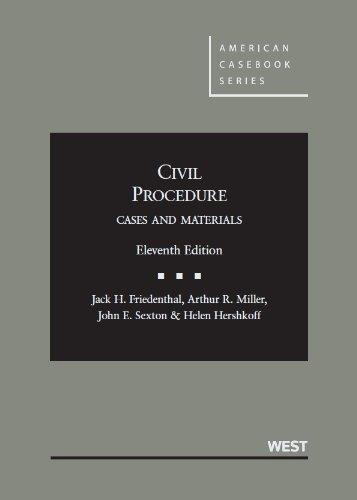3. Studies show that a partys willingness to accept a courts adverse judgment often depends on whether
Question:
3. Studies show that a party’s willingness to accept a court’s adverse judgment often depends on whether the court’s process is regarded as fair. Perceptions of procedural fairness are linked to four critical principles: “voice,” or the opportunity to present one’s own side of a story; “neutrality,” or the decision maker’s lack of bias and adherence to rules; “respect,” or the system’s signal that the participants are important and valued, regardless of their social or economic status; and “trust,” or the view that the court system is serving a public function and is committed to its mission. See Tyler, Procedural Justice and the Courts, 44 Court. Rev.
26, 28–31 (2007–2008). How might these values be incorporated into a system of civil procedure? See Thibaut & Walker, A Theory of Procedure, 66 Calif. L. Rev. 541 (1978). For the view that procedural fairness also must take account of the underlying substantive law that it seeks to enforce, see West, The Limits of Process, in Getting to the Rule of Law: Nomos L, 32 51 (Fleming, ed., 2011).
Step by Step Answer:

Civil Procedure Cases And Materials
ISBN: 9780314280169
11th Edition
Authors: Jack Friedenthal, Arthur Miller, John Sexton, Helen Hershkoff






